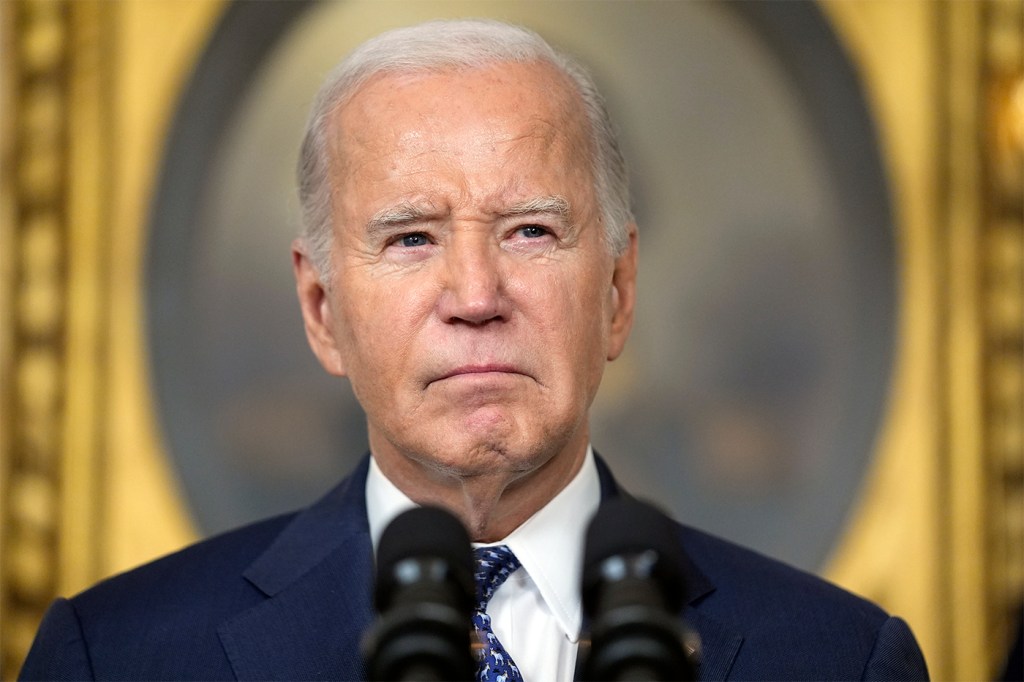Biden wants to reform the Supreme Court, but expert says ‘it’s too little, too late’
The proposal reads more like a bid for greater public support for the cause, as Biden looks to hand over the reins to Vice President Kamala Harris, Dan Urman, a Northeastern legal scholar, says.

President Joe Biden laid out a series of proposed changes Monday to the U.S. Supreme Court that included term limits, a constitutional amendment addressing the court’s recent decision on presidential immunity and an enforceable ethics code.
But the proposed changes in all likelihood would require two constitutional amendments, a longshot in Congress given present political conditions, says Dan Urman, director of the law and public policy minor at Northeastern University, who teaches courses on the Supreme Court.
The proposal is more like a bid for renewed support behind the cause of reform, as Biden looks to hand over the reins to Vice President Kamala Harris, he says.
“President Biden is a lame duck in every sense of the term, and that basically means that he doesn’t have the political capital to spend — and no one owes him any favors, really, in Congress,” Urman says. “The issue of reforming the Supreme Court came up in the primaries on the Democratic side in the 2020 presidential election, and out of all the candidates Biden was the least interested in reforming the court.”
The three-tiered plan calls for an 18-year term limit for Supreme Court justices; a “No One Is Above the Law Amendment” that would look to hold presidents accountable for crimes committed while in office; and a binding set of ethics rules to supplant the status quo.
Featured Posts
“All three of these reforms are supported by a majority of Americans — as well as conservative and liberal constitutional scholars,” Biden wrote in a Washington Post commentary. “And I want to thank the bipartisan Presidential Commission on the Supreme Court of the United States for its insightful analysis, which informed some of these proposals.”
At face value, Urman says, it’s “a very sound” proposal, but one that won’t ever see the light of day. That’s because the Democrats would have to pass a constitutional amendment, a measure that requires two-thirds approval in both chambers of Congress, as well three-fourths of states to ratify — a tall order considering how politically divided the two parties are on the issue.
The timing of Biden’s op-ed — less than 100 days out from the 2024 presidential election — is such that it puts Supreme Court reform “back on the agenda” and, therefore, “on the ballot,” Urman says. “Attacking an institution that is so unpopular is good politics.”
As Biden has bowed out of the race for president, it’ll be up to Harris, who is the presumptive Democratic nominee, to carry forward his plan. For Biden, the prospect of reform is “too little, too late,” Urman says.
“A binding ethics code I think makes complete sense,” he says. “If you have rules without enforcement, then those rules become optional. Also, we are very unique, as a nation, in that we have life-tenure for all federal judges.”
The high court has weathered scandals in recent years, most notably when several of its members were accused of failing to report gifts and luxury travel. Legal groups have called on Chief Justice John Roberts to enforce stricter recusal standards amid concerns that justices’ ties to wealthy donors may be influencing their conduct.
But Sahar Abi-Hassan, an assistant professor of political science at Northeastern, who studies the behavior of Supreme Court justices, says that implementing new ethics rules may not change much.
“The idea of putting in place a binding code of ethics, in my opinion, isn’t going to necessarily change things by way of how the justices make decisions,” Abi-Hassan says. “Because we don’t really have a way of knowing the impact that this soft-lobbying — the idea that some of these groups or individuals have the justices’ ears — has on their decision-making. As political scientists, we don’t have a way to analyze or gather that data.”
Abi-Hassan says she’s more concerned about the court’s “complete discretionary power” as an unelected body to decide cases through the use of the so-called “shadow docket,” a mechanism through which it can issue decisions with limited briefing and no oral argument.
“To have nine individuals be able to change the course of public policy and politics in our country without having to hold oral arguments or publish opinions — that, in my view, has much broader implications,” she says.











